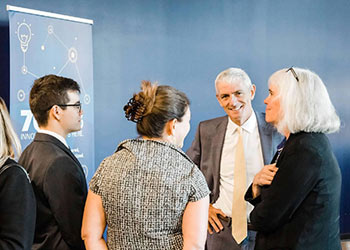Research findings suggest that peer mentoring circles can provide an additional layer of support to the more traditional mentoring programs that may be offered by MU colleges and departments. For example:
1. Peer mentoring circles help to build supportive networks. Circles consist of an interdisciplinary community of faculty members who are at similar professional development stages of their career, are facing similar challenges, and in need of similar support and encouragement. Peer mentorship allows for a chance to receive, and provide, support to others in your community (Beihle et al., 2021; Darwin & Palmer, 2009; Waddell et al., 2016)
2. Peer mentoring circles can help reduce faculty members’ sense of isolation. Peer mentoring circles can create a sense of belonging and aid in career satisfaction and retention of women and BIPOC faculty (Dupree & Boykin, 2021; Moss-Racusin et al., 2021; Thomas et al., 2015).
3. Peer mentoring circles allow for sharing of information, open discussion of common issues and ideas, and the development of shared solutions or resources. This process has been found to decrease self-doubt, increase a sense of shared purpose, has been linked to successful career advancement, productivity, work satisfaction, and personal growth (Kensington-Miller, 2014; Waddell et al., 2016)
4. Peer mentoring circles can serve as a mechanism to change the university culture and promote a climate of collegial support (Thomas et al., 2015; Waddell et al., 2016).
